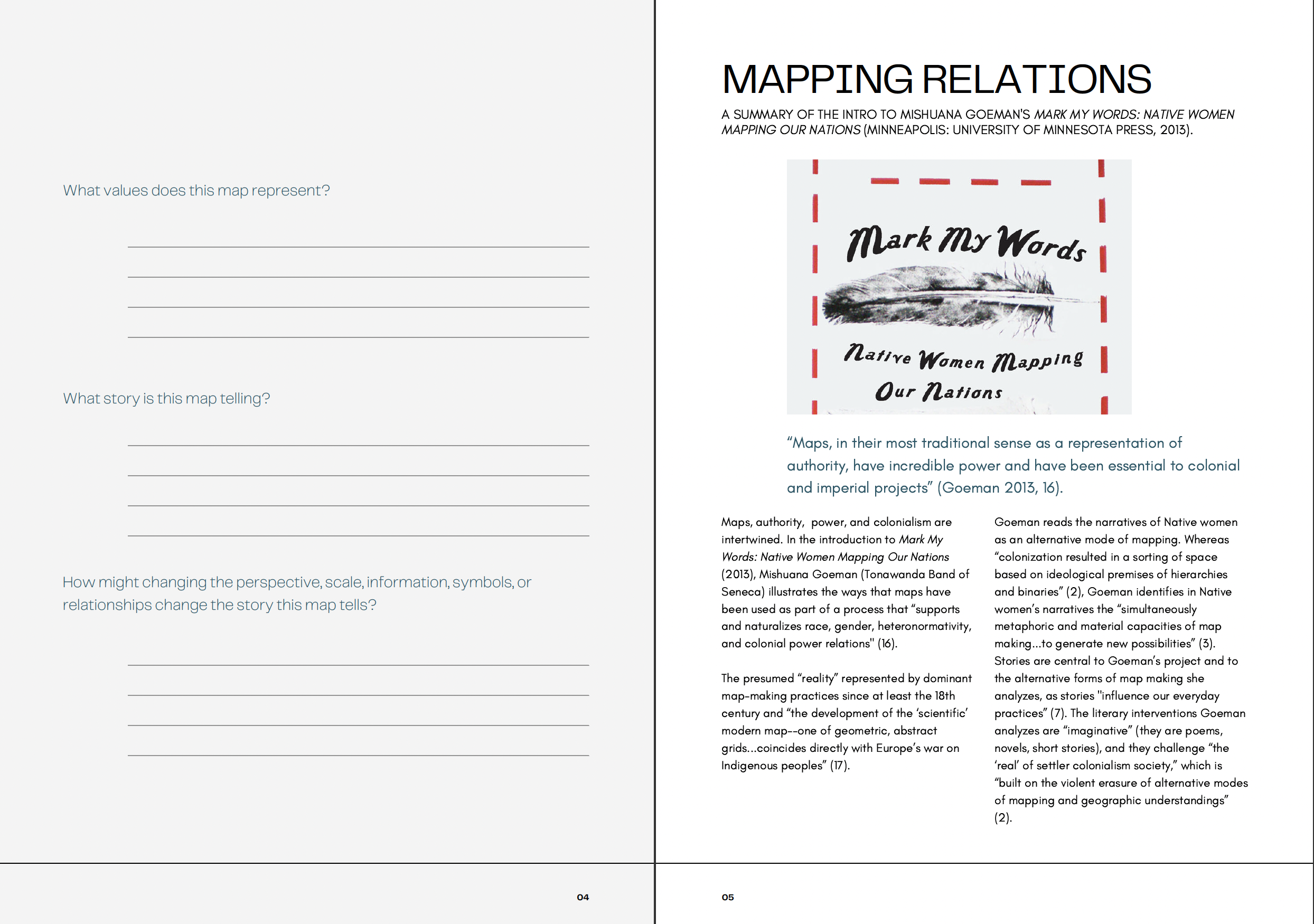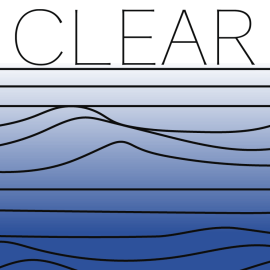For her CLEAR Artist in Residence project, bookmaker, artist, and educator Emily Roehl worked with CLEAR to create a workbook organized around the question:
“How might we think about the tensions in attempting to address colonialism in mapping some of our daily engagement with oil?”

Through a series of conversations and workshops, Rohel created and revised a workbook designed for anyone who wants to think about the complex relationships that shape land relations.
“This workbook contains excerpts from artists and scholars who have grappled with the complicated histories of mapping and/or oil. It offers questions for reflection that guide you through a process of thinking and responding. The workbook asks you to consider your own spatial and resource relations in terms of land and colonialism. The workbook concludes with three prompts: proposals for ways you might turn your reflections into creations. It also includes a space for adding your own prompts, suggestions for further acts of creation or alterations of the prompts as written. By asking you to engage with some aspect of your daily relationship with oil to produce something like a map (though it may look nothing like a map and you may decide to drop the word “map” altogether) is to work against dominant narratives of oil while situating yourself within the systems of colonial power it fuels, both in terms of mapping (spatial relations) and oil (resource relations).”
